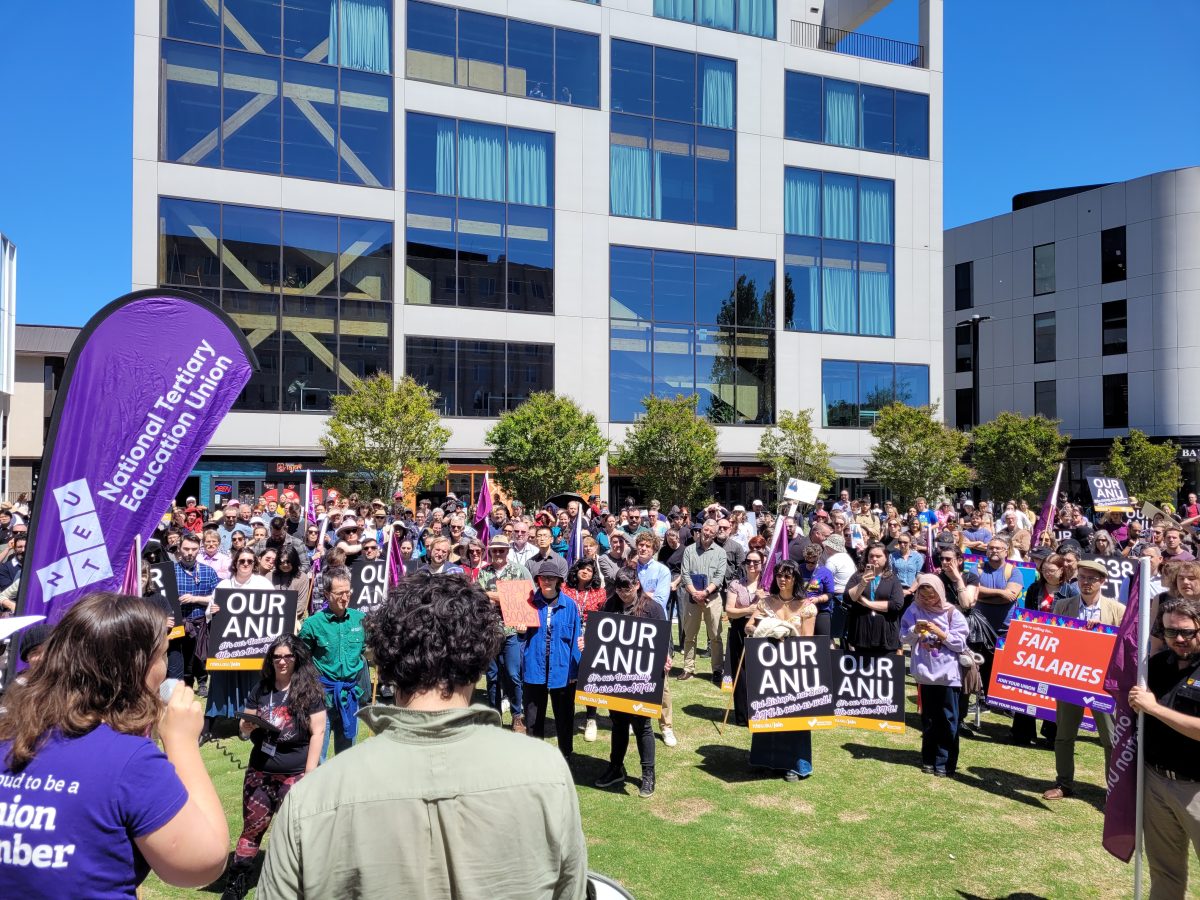
Given universities are established under state law, the Federal Government would have to reach an agreement with each jurisdiction’s government for the watchdog to have any sway on tertiary executive salaries. Photo: NTEU.
The National Tertiary Education Union (NTEU) has celebrated a new watchdog to rein in vice-chancellor pay and wage theft, despite its powers being restricted to advice and guidance.
Amid the last week of sitting for Parliament, Education Minister Jason Clare announced the federal watchdog shortly after the release of an NTEU report that detailed how more than 300 senior university executives are paid more than their state premier, and over 140,000 workers had been underpaid an estimated $400 million.
However, a spokeswoman for Minister Clare told the Australian Financial Review that a government-appointed expert council on governance would not have the authority to set or cap vice-chancellors’ salaries.
“It will look at transparency and accountability processes such as the way remuneration policies are developed for senior university staff,” she said.
Despite its shortcomings, the higher education union’s national president Dr Alison Barnes applauded the Federal Government “for responding to our [NTEU] calls for governance reform”.
While admitting “there’s more to do”, Dr Barnes said “it is very encouraging that Minister Clare has begun to act on the crisis in higher education” and the NTEU “stands ready to help the government implement these changes”.
In the Ending Bad Governance – For Good report, analysis by the NTEU looked at executive pay, which it claims has “almost no relationship between university staff or student numbers, international ranking, financial performance and the respective vice-chancellor salaries”.
It found the average vice-chancellor salary was $1.048 million in 2023, such that the average university now has six executives paid more than the local state premier. Monash University was in the lead, noting 16 executives had received more than Victorian Premier Jacinta Allan.
The report also claims:
- Universities spent $734 million in 2023 on consulting and professional advice or services
- Sixty-eight per cent of all workers in the sector are employed on casual or fixed-term contracts
- Total wage theft is now $226 million in confirmed underpayments and $168 million in pending provisions.
Along with “egregious conflicts of interest” that “would not be allowed in the public sector”, the NTEU report alleges that “universities have a pattern of poor workforce planning and retrenching indispensable staff”.
It details how 11 universities that have proposed at least 2291 job losses in late 2024 previously retrenched almost 4800 staff in 2020 and 2021 – “only to add back 3600 staff by 2023 before then announcing another round of job losses in 2024”.
Things aren’t going much better for the governance of NTEU either, according to the Australian Higher Education Industrial Association (AHEIA).
The peak university industrial relations body said higher education staff were deserting their principal union, meaning their inputs would be lost in matters of governance and workplace operations.
Recent changes in the NTEU following elections last month reveal the union has been unable to fill almost 25 per cent of more than 830 positions on offer.
AHEIA director Craig Laughton noted as an example the Australian Catholic University’s branch and sub-branches, where 11 of the 26 positions open remained vacant. However, he said “in some universities and associated organisations, the situation is even more stark”.
When the NTEU reported its results to the Fair Work Commission:
- Four of the ACT division’s 12 positions remained vacant
- Eleven of the Australian National University’s 20 positions remained vacant
- Nine of Deakin University’s 19 positions remained vacant
- Six of Swinburne University’s 21 positions remained vacant
- Eight of the University of Canberra’s 11 positions remained vacant.
Mr Laughton said he hoped this issue did not flow through to the next round of enterprise bargaining, where it would be essential for the union to have a full complement of fully briefed and competent representatives.
“This begs the question: if the union can’t get enough of its own positions filled to run its own organisation’s branches, how can it expect to do even more,” he said. “It’s a question of governance and resources.
“Are people eschewing these branch positions because they aren’t being listened to, they feel irrelevant, or what?”







